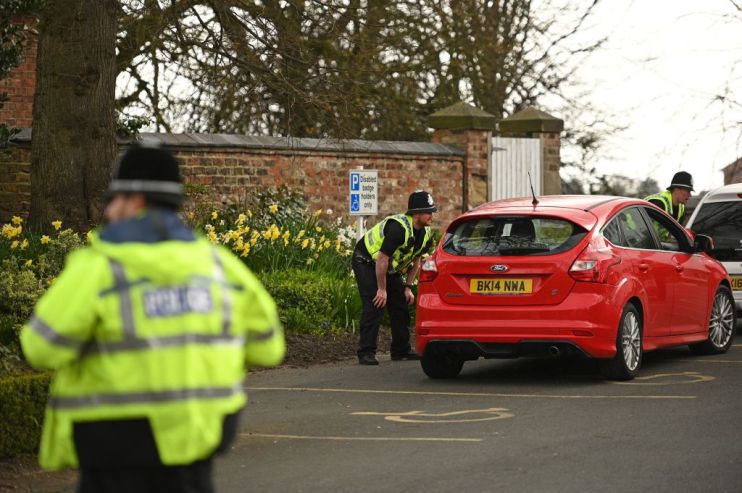Some police may have taken coronavirus powers too far, says minister

Transport secretary Grant Shapps has admitted that some police officers have gone too far in enforcing the coronavirus lockdown amidst claims the UK was at risk of becoming a “police state”.
Speaking to Sky News this morning, Shapps said police were doing a good job, but he was “sure there are individual examples where perhaps you look at it and think that is perhaps a bit further than they should have gone”.
Police were given emergency powers last week to issue £60 fines, reduced to £30 if paid in 14 days, for anyone not following the government’s social distancing instructions.
There have already been complaints of officers being overzealous with the new powers, with some shops incorrectly being told they could not sell chocolate as it is “non-essential”.
One car load of essential workers in Greater Manchester were sent back home, after officers would not believe they were on the way to work, according to The Telegraph.
Other people have been reprimanded while on a walk, despite the government’s rules allowing exercise once a day.
The National Police Chiefs’ Council has now sent a letter to every police force in the nation urging them to adopt a “consistent” approach and to have an “inquisitive, questioning mindset”.
Former Supreme Court judge Lord Jonathan Sumption said yesterday that the UK risked turning into a “police state” if forces follow the lead of Derbyshire Police Force.
The Derbyshire Police Force has been monitoring walkers with drones and threw black die into a lagoon to stop people using it.
Lord Sumption told the BBC it was “frankly disgraceful” for them to “shame people from using their undoubted right to travel to take exercise in the country and wrecking beauty spots in the fells so that people don’t want to go there”.
“The tradition of policing in this country is that policemen are citizens in uniform, they are not members of a disciplined hierarchy operating just at the government’s command,” he added.
“This is what a police state is like. It’s a state in which the government can issue orders or express preferences with no legal authority and the police will enforce ministers’ wishes.”
Shapps defended the work of police forces across the country, while admitting some may have taken their emergency powers too far.
He said: “I am sure there are individual examples where perhaps you look at it and think that is perhaps a bit further than they should have gone but in general terms I think the case is that if people help everybody out, including the police, by staying home and the rest of it, then there will be no problems.”